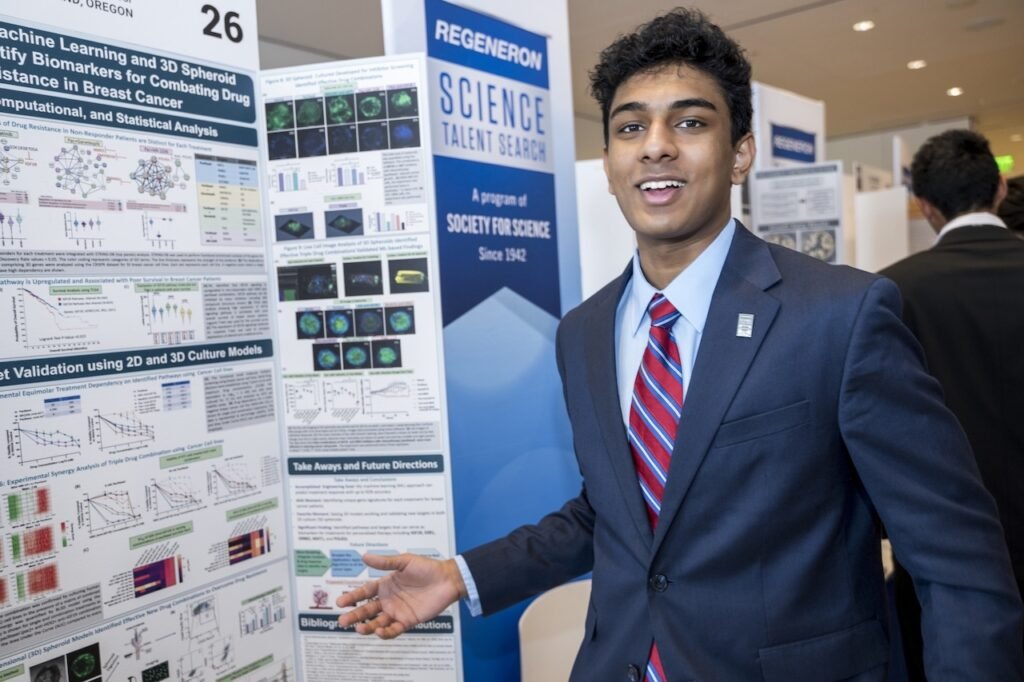Ekansh Mittal may be just 18 years old, but he already has a wealth of scientific experience.
As a sixth-grader at Meadow Park Middle School, he proposed his first research project to a local lab: a series of experiments testing whether natural herbs and spices could inhibit bacterial growth. During the pandemic, he learned the programming language Python and began working on a computational biology project.
“I fell in love with biology and research,” Mittal said.
Now, the 2024 Westview High School graduate is gaining national recognition for his passion for scientific research.
Mittal was one of 15 recipients of the 2024 Gloria Barron Young Hero Award, a program that recognizes young leaders between the ages of 8 and 18. She won for her cancer research, which uses machine learning to create personalized treatment plans to improve early detection for breast cancer patients. She also received a cash prize of $10,000.
Mittal’s Barron Prize project was in two parts. In the first, she used machine learning and computer science techniques to identify genes that cause resistance to anti-cancer drugs in breast cancer patients. She then created 3D organoid models (stem cell-derived models that mimic human organs) to test whether targeting those genes resulted in more or fewer cancer cells dying.
Targeting genes in this way has proven more effective than traditional chemotherapy at killing cancer cells while leaving healthy cells alive, and his method could potentially be adapted for clinical trials by changing how specific drugs are selected.
Mittal’s previous work has focused on early detection, creating an alternative cancer test that identifies types of bacteria sometimes found in cancer patients.
His involvement in this subject is personal: When he was 14, he visited his grandmother in India and learned that she had been diagnosed with osteosarcoma (a type of bone cancer). She died just two months later.
“She seemed perfectly healthy. We were up until 1 a.m. laughing and talking and mingling,” Mittal said. “It made me get out of my seat. It made me realise that cancer is not far away.”
Mittal has presented his research at science fairs across the country, and he was a national finalist in this year’s Regeneron Science Talent Search, a prestigious research competition that selects 40 high school students each year to attend a week-long conference.
Mittal said the judges’ probing questions about his research were a rewarding experience, prompting him to think about areas where he could improve.
Mittal is also passionate about supporting other young people who want to pursue STEM fields, an interest born out of his responsibilities as a tutor for his sister Anushi during their childhood.
During the pandemic, Mittal launched his own tutoring website, STEM Universe, with a focus on helping kids develop a love for science, technology, engineering and math. He teaches math and Python courses alongside Anushi.
“It feels like it’s come full circle, working with my sister is what got me into teaching and now she’s become a teacher for the same reason,” he said.
Mittal will use his $10,000 prize money to pay for his tuition at Stanford University, where he will soon begin his first week of classes as a computer science candidate. He hopes to continue his research in computational biology, but is most excited to explore his options and see what comes next.
—Veronica Nocera covers life and culture. She can be reached at vnocera@oregonian.com, 503-221-8111 or Follow

